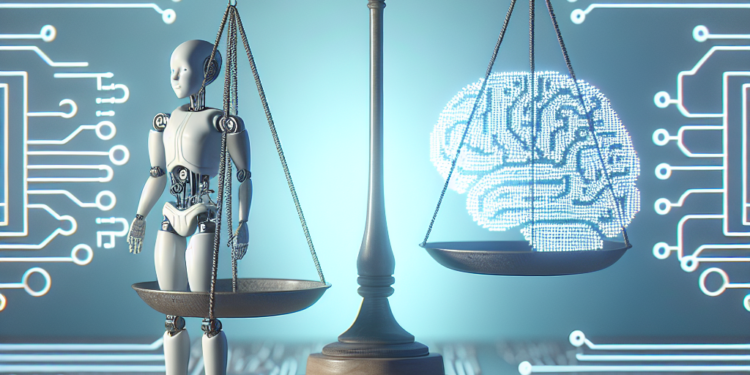Artificial intelligence (AI) is rapidly becoming an integral part of our daily lives, transforming industries, businesses, and society as a whole. As AI technologies continue to advance, there are growing concerns about the ethical implications of their development and use. Ethical concerns in AI range from issues of bias and discrimination to transparency and accountability. In this article, we will explore some of the key ethical concerns addressed in AI developments.
One of the most pressing ethical concerns in AI is the issue of bias and discrimination. AI systems are only as good as the data they are trained on, and if that data is biased, the AI system will also be biased. For example, a study by the National Institute of Standards and Technology found that many facial recognition systems have higher error rates for darker-skinned individuals, indicating a bias in the training data used to develop these systems.
This bias can have serious consequences, such as perpetuating discrimination against certain groups of people or reinforcing stereotypes. For example, if a facial recognition system is biased against darker-skinned individuals, it could result in these individuals being wrongly identified or targeted by law enforcement.
To address this ethical concern, developers and researchers are working to develop more inclusive and diverse training datasets, as well as implementing measures to detect and mitigate biases in AI systems. For example, companies like Microsoft and IBM have developed tools that can help identify and reduce bias in AI systems.
Another ethical concern in AI is the issue of transparency and accountability. AI systems are often complex and opaque, making it difficult for users to understand how they work or why they make certain decisions. This lack of transparency can lead to a lack of trust in AI systems and raise concerns about accountability when things go wrong.
For example, in the case of autonomous vehicles, if a self-driving car is involved in an accident, who is responsible? Is it the manufacturer of the car, the developer of the AI system, or the person who was supposed to be monitoring the vehicle? These questions highlight the need for clear guidelines and regulations around the accountability of AI systems.
To address these concerns, researchers are working on developing techniques to make AI systems more transparent and explainable. For example, explainable AI (XAI) is a field of research that focuses on creating AI systems that can provide explanations for their decisions in a way that is understandable to humans. By increasing transparency and accountability in AI systems, we can help build trust and ensure the responsible use of these technologies.
Privacy is another major ethical concern in AI developments. AI systems often rely on large amounts of data to learn and make predictions, raising concerns about the privacy and security of personal information. For example, facial recognition systems that are used for surveillance purposes can raise serious privacy concerns if they are deployed without proper consent or safeguards.
To address these concerns, developers and policymakers are working on developing regulations and standards to protect the privacy of individuals in the age of AI. For example, the General Data Protection Regulation (GDPR) in the European Union provides a framework for the responsible use of personal data and gives individuals more control over how their data is collected and used.
One of the most controversial ethical concerns in AI is the potential impact on jobs and the economy. As AI technologies continue to advance, there are fears that automation and artificial intelligence will lead to widespread job loss and economic disruption. For example, a study by McKinsey & Company found that up to 800 million jobs worldwide could be displaced by automation by 2030.
To address these concerns, policymakers and experts are exploring ways to mitigate the impact of AI on jobs and the economy. For example, some have suggested implementing policies such as universal basic income or retraining programs to help workers adapt to the changing labor market. Others argue that AI could create new opportunities and industries, leading to job growth and economic prosperity in the long run.
In conclusion, ethical concerns are a crucial aspect of AI developments that must be addressed to ensure the responsible and beneficial use of these technologies. From bias and discrimination to transparency and accountability, there are numerous ethical challenges that must be overcome to build a future where AI can truly benefit society. By working together to address these concerns, we can harness the power of AI to improve our lives and build a better future for all.













